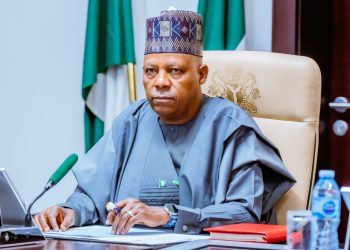The government should reach out to ASUU, as the nation can ill-afford another industrial strike
The seeming peace between the Academic Staff Union of Universities (ASUU) and the federal government was recently jolted when the university lecturers announced that the union was being owed about N660 billion under the Needs Assessment Intervention Funds (NAIF) by the government. According to ASUU, the money was part of the unpaid intervention fund for the last three years. In addition, ASUU argued that the federal government still owes academic staff in the public universities a whopping N200 billion in arrears of earned allowances for the 2014 and 2015 academic years. The union made a number of other claims with a warning that it could yet go on another strike in the not-too-distant future.
Whatever the issues are, it is important that the federal government and ASUU find a common ground before the nation’s tertiary institutions are grounded again as a result of another industrial action. Another strike would further damage whatever remains of the credibility of tertiary education in our country. Students in our universities have suffered enough in recent years and this administration should do everything to ensure we do not return to the dark past.
The federal government and ASUU have for several years been locked in a running battle over the implementation of agreements on the funding of the country’s public universities. The consequences have been lengthy industrial strikes by the lecturers, with the attendant debilitating effects on educational development in particular and academic pursuits in general.
We believe an early intervention, especially by the Minister of Education, Mallam Adamu Adamu, is important here. Nigeria and Nigerians will be the losers should any untoward action, like another industrial action, is embarked upon by university teachers to force the implementation of outstanding agreements between them and the federal government. Strikes have contributed significantly to the decline in the quality of graduates of our public universities. The hurried academic calendars, following the end of industrial actions, allow for very little attention to serious studies or research. That is why our public universities have continued to go down the ladder of academic rankings, even among their peers in Africa.
Again, we cannot shy away from the fact that the under-funding of the education sector over the years has collateral damaging effects on the country, such that our universities have now become grotesque carcasses of their former selves. But dealing with the challenge requires more than seasonal strikes by the lecturers while the federal government also needs to understand the primacy of constant dialogue, especially given the current realities.
However, going forward requires other critical stakeholders in the education sector joining in the efforts to find a lasting solution to what has become a perplexing national challenge. In doing this, the federal government should take the initiative so that we can collectively come up with ways to reposition tertiary education in our country. It is unfortunate that disputes are always occasioned by the broken promises and unfulfilled agreements of the federal government. Yet there is no way we can develop our country until efforts are made to revitalise key sectors like education.
What the foregoing therefore means is that another strike by ASUU will not be in the interest of the nation. While we call on the lecturers to temper their expectations with realism, we also hope the Minister of Education and his team will do everything within their powers to avert another strike.













































